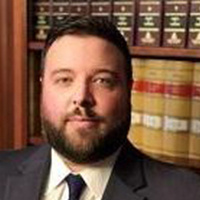South Kent RICO Act Lawyer, Connecticut
Sponsored Law Firm
-
 x
x

Click For More Info:
-
Andrew M Amendola, Attorney at Law
591 Thompson Avenue East Haven, CT 06512» view mapAccident & Injury, Criminal, Estate, Real Estate Where Every Client Matters
Let Andrew M Amendola, Attorney at Law handle all your legal needs today@
800-942-4780
Not enough matches for South Kent RICO Act lawyer.
Below are all South Kent Criminal lawyers.
Steven Howard Levy
✓ VERIFIEDDivorce & Family Law, Criminal, Personal Injury, Wills & Probate, Real Estate
Attorney Levy earned his B.A. from the State University of New York at Buffalo, and his J.D. from Antioch School of Law. He was admitted to the Connec... (more)
Robert A Salerno
✓ VERIFIEDCriminal, Workers' Compensation, Personal Injury, Divorce & Family Law, Wills & Probate
Robert A. Salerno attended Law School and received a B.S. from High Point University in 2005 and his Juris Doctor in 2009 from Touro Law Center. He wa... (more)
Dom Chieffalo
Dispute Resolution, DUI-DWI, Business Organization, Banking & Finance
Status: In Good Standing
William A. Conti
Accident & Injury, Criminal, DUI-DWI, Divorce & Family Law
Status: In Good Standing Licensed: 51 Years
William Achille Conti
Federal Appellate Practice, Workers' Compensation, Divorce & Family Law, Criminal, Divorce
Status: In Good Standing
William L. Stevens
Landlord-Tenant, Arbitration, Criminal, Administrative Law, Animal Bite
Status: In Good Standing Licensed: 43 Years
Maureen Elizabeth Donahue
Estate, Divorce & Family Law, Criminal, Personal Injury, Child Custody
Status: In Good Standing
James A Saraceni
Criminal, Business & Trade, Administrative Law, Car Accident
Status: In Good Standing
Jackie Chan
Commercial Real Estate, Litigation, Criminal, Commercial Bankruptcy
Status: In Good Standing Licensed: 51 Years
 Andrew Amendola East Haven, CT
Andrew Amendola East Haven, CT AboutAndrew M Amendola, Attorney at Law
AboutAndrew M Amendola, Attorney at Law


